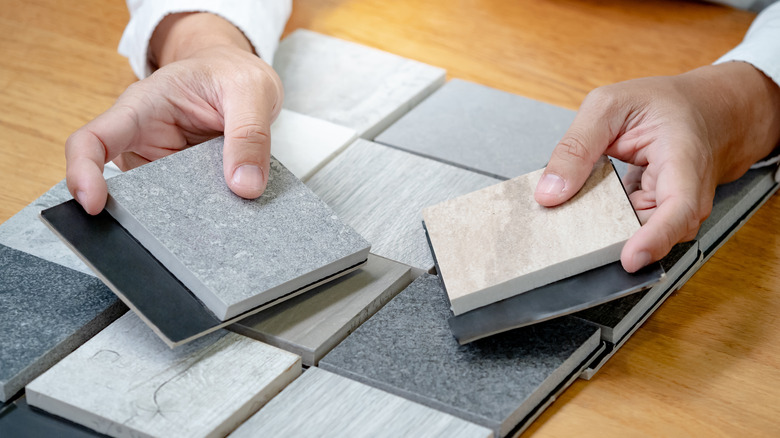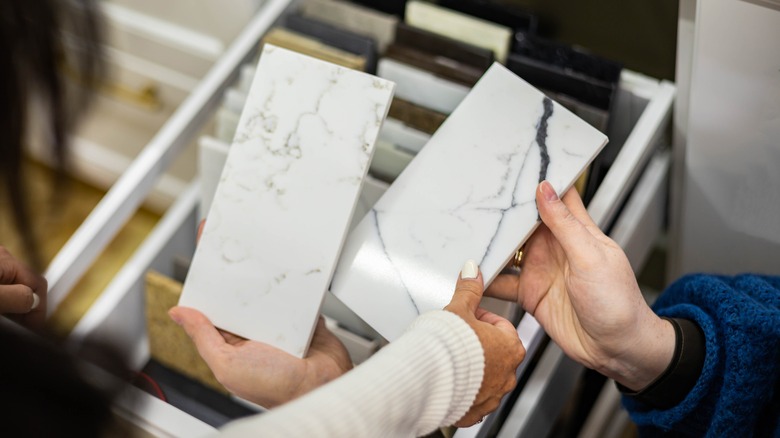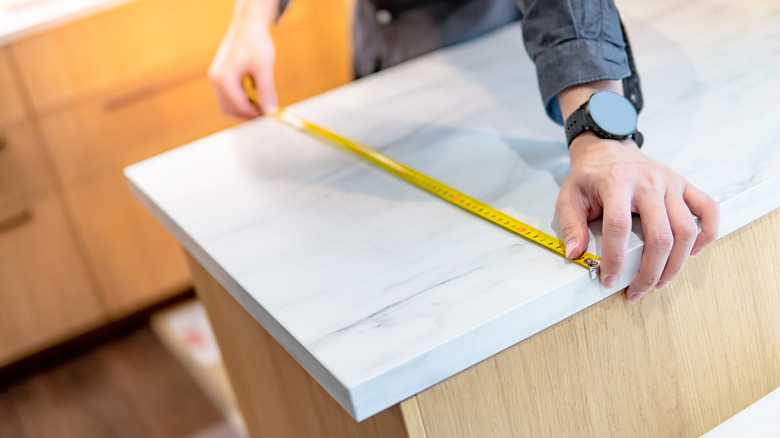Are Quartz Countertops Cheaper Than Granite? What To Know Before Investing
Unlike granite, quartz is not a natural stone material; it is manufactured. However, the countertop material has been rising in popularity recently due to its durability and versatile appearance, which can be made to look like natural stone. If it has caught your eye, you're probably wondering how much it will cost to add quartz countertops to your kitchen. Like all countertop materials, quartz varies in price. On average, you'll be looking at a cost of between $70 to $100 per square foot, though this price will change depending on the quality of the quartz you opt for.
On the other hand, granite countertops will set you back between $40 to $100 per square foot. On the surface, these prices look similar, but they can creep up when it comes to extras and installation. Before you opt for one over the other, you should know a few extra things about the price difference between granite and quartz countertops. We've laid them out below so you can feel sure you're making the right decision.
The quality and price of quartz and granite varies
There are three different types of quartz: first choice, commercial grade, and second choice. The first choice is the most premium quartz available and has the highest price tag to match, costing approximately $80 to $100 per square foot. Despite its name, commercial-grade quartz is pricier than second-choice quartz. It normally runs between $60 to $80 per square foot. Second-choice quartz will set you back $50 to $60 per square foot, making it by far the most affordable option. As well as differences in price, there are also discrepancies in the quality of the quartz levels. The cheaper the quartz, the more resin it will contain, which is something to keep in mind if you want your countertops to be as durable as possible.
Granite also has wildly varying prices. For example, Blue Louise granite will cost between $70 and $100 per square foot, whereas Alaska White granite is much more affordable at $35 per square foot. Just like quartz, the color and quality of different types of marble impact the cost. Additionally, extras, such as edge treatments and sealing, will increase the overall cost of quartz and granite countertops.
Factor in how your countertops will be installed
How you want your quartz countertops to be installed will also incur costs. Additions like edge treatments (straight, beveled, slightly curved, etc) are priced from a reasonable $5 all the way up to $30 per linear foot. You don't have to pay for these extras, but many homeowners like to incorporate them for the finishing touch to their countertops. However, unlike granite, which requires sealing for protection, you don't need to seal quartz. This will save you money that you can spend on extras, like edge treatment or a different, more high-end design.
Overall, the answer to whether quartz countertops are cheaper than granite depends on the type of quartz and the type of granite you buy. While quartz could work out cheaper, on average, it tends to be more expensive per square foot than granite (again, this will depend on where you live and added installation and extra costs). Still, the overall price difference isn't very big. Because of this, we recommend choosing the best countertop material for you and your kitchen rather than basing your decision purely on price.


